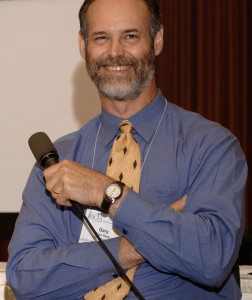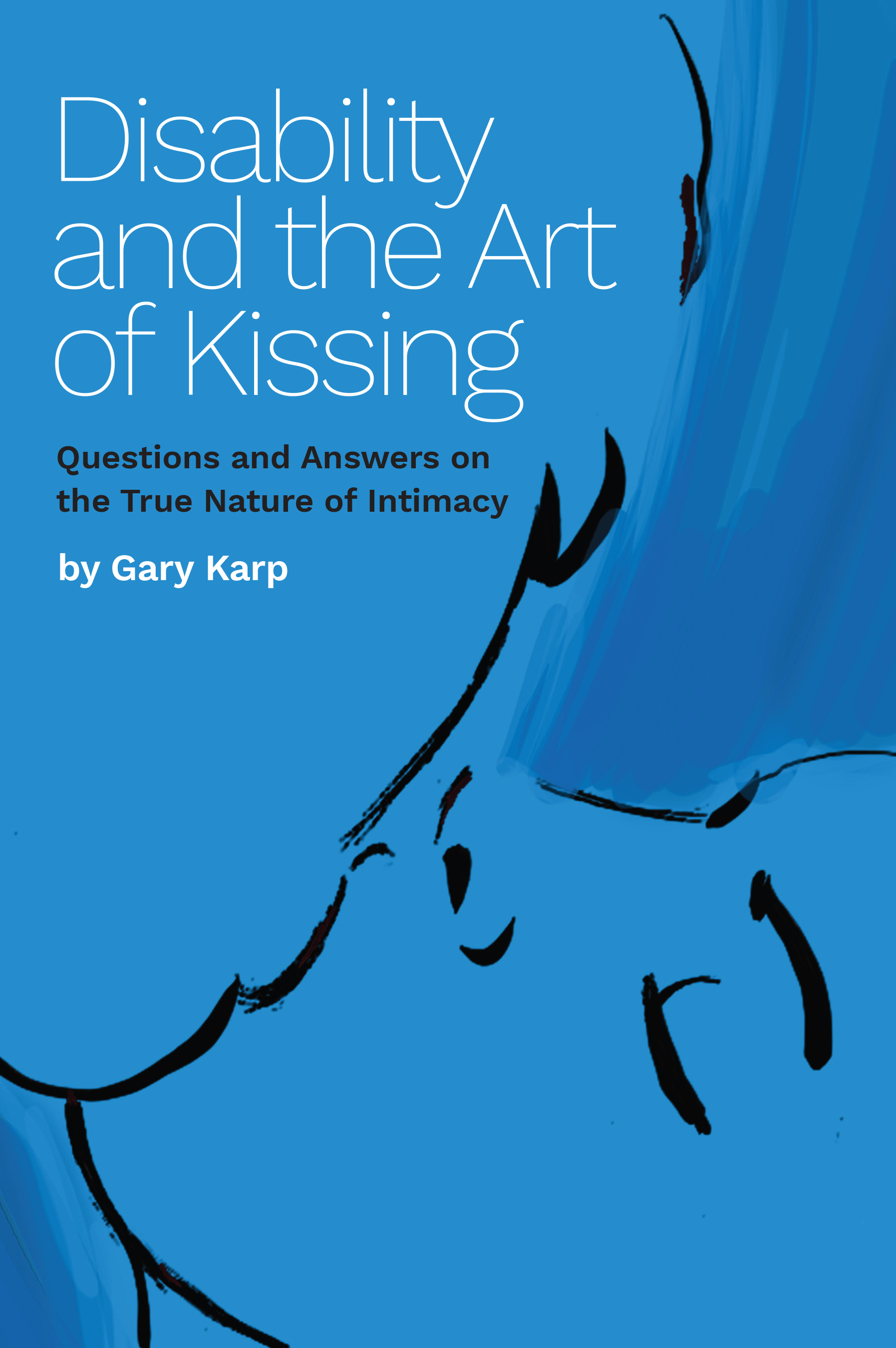How Do People DO This?!
Adjusting to disability seems like an impossible mission.
Yet people do it all the time. They learn how it works. They discover they have the
inner resources it takes to succeed.
Obviously, it's not a simple process. Sometimes it's very difficult.
Gary Karp's talks and writing helps pave the way, helping people understand how people move through the initial period of traumatic change to the other side.
On the other side? A renewed, integrated sense of self, exploring possibilities.
Are you a disability association? Rehab professionals group? Planning a university event?
To book Gary contact him by email or call him at 415.509.6682.
What Gary Says
Gary's talks are based on a core philosophy: as human beings we are all wired with a capacity to adapt, to reach for the life that is possible. Given the support and resources they need, it is far more the rule than the exception that people succeed in the process of adjustment to a disability. Here are some of his key points:
There is a range of coping styles a given person might draw from when tye acquire a disability. Not everyone goes to the dark side — angry, depressed, or even suicidal. It's a scale, and the other end is being positive, focusing on work, and using denial to ward off the grieving process. Neither is right or wrong, but simply ends of a continuum that help an individual get through the initial period just post-trauma.
Adapting to disability is very much a matter of learning how it's done. People with disabilities gain mastery in living with their disabilities, thanks to a rehabilitation stay, community-based programs, and drawing on resources such as disability groups, the Internet, and Gary's books. Wheelchair skills, dressing, being healthy, using assistive technologies, problem solving for whatever someone wants to do in their life. Gary motivates people to do the work, gain the techniques of living with disability.
In his years of living with disability since 1973, Gary has witnessed nothing short of an historic, revolutionary change in the experience of having a disability. Following his injury there were few accessible restrooms, building entrances, cut curbs, or blue parking. Little consolation to someone with a very recent disability, but the fact is that the quality of life available to someone with a disability is greater than it has ever been in the history of humanity on earth!
A key part of how people successfully adapt is the transiton from Walking Mind to Wheeling Mind (or Blind Mind or Deaf Mind or Limb Loss Mind and so on). Because we are all built to seek to feel OK about ourselves as we are, over time our attention naturally shifts to a focus on what's possible rather than what we've lost. Wheelchair users, for instance, naturally come to see that the wheelchair is not a confinement, but the source of their mobility and independence, a tool to master and treasure. When you can't walk (or see or hear...) then your perspective is very different.
The need for intimate relationship, sensual experience, for our relationships to continue to include the pleasure of sexual sharing — all of these are entirely possible in the context of a disability. This essential human need does not disappear simply because of an impairment of some kind. Although people who acquire disability must go through an adjustment process, must deal with aspects of loss, the discovery of the true nature of intimacy many people with disabilities report shines light on what relationship — and sex — is really about. As an 18 year old boy at the time of his injury, Gary certainly had a lot to learn!
Gary builds some of his talks around his own story of the spinal cord injury he acquired on the Fourth of July, 1973 at the age of 18. He doesn't tell his story for the sake of admiration or simple drama, but as a launching point for the key points of the talk. Gary's story is the basis of his having observed the incredible changes in the disability experience in the ensuing years, and the foundation of his belief that people are well equipped to adapt and integrate and normalize a disability experience. Among other things.
Cheryl L. Vines
"Your keynote hit the mark in every way. Several participants said your presentation was one of the best ever in the twenty years of our conference."
Clare Lewis
"We are so very fortunate there are people like you willing to give their time to further the education of future rehabilitation professionals."
Steve Williams
"We are not aware of anyone else with your particular mix of speaking and leadership ability, good spirit, and insight into spinal cord injury."
Marlene Harmon-Perkins
"Gary engaged the audience in a lively discussion of the importance of spiritual and personal well-being, a subject too often overlooked."



